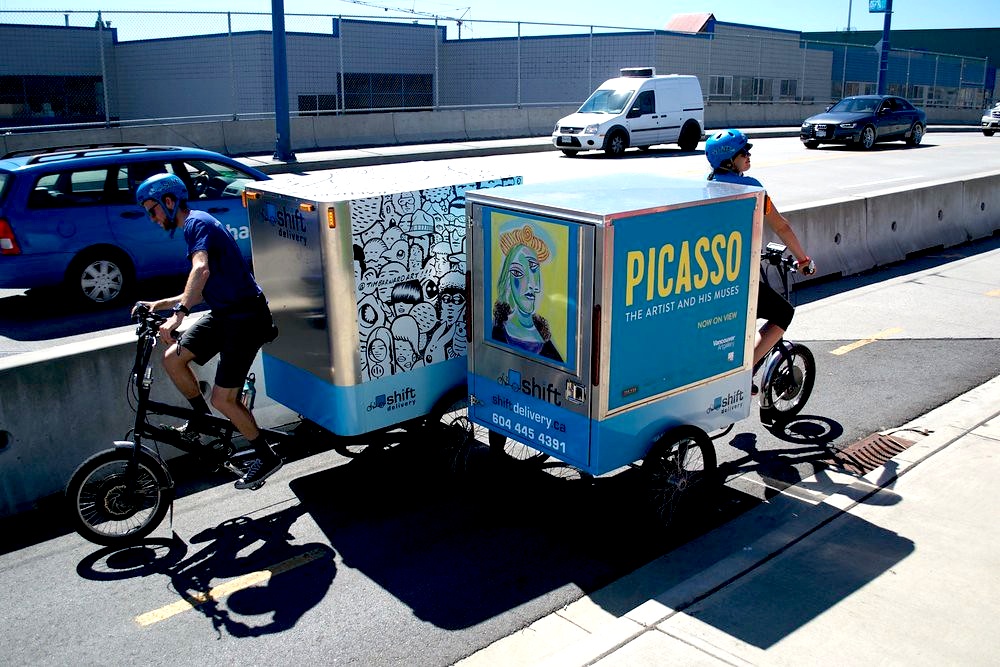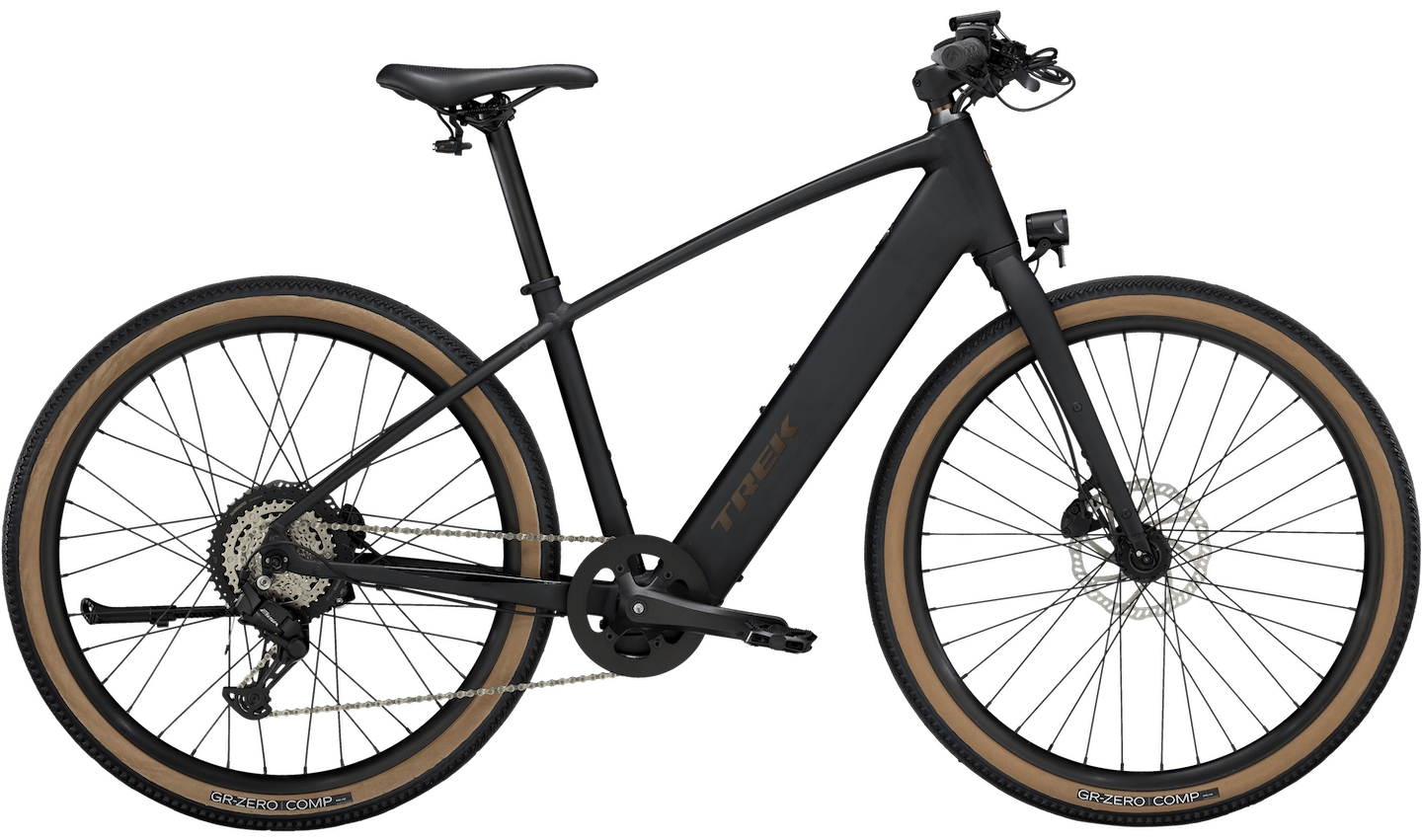May 21, 2021 - The Province of British Columbia is partnering with the City of Vancouver to support a cargo e-bike micro hub project that will help reduce traffic congestion and air pollution around the city.

“Investing in green transportation is an important part of our CleanBC plan, and a necessity to tackle climate change and reduce greenhouse gas emissions,” said Rob Fleming, Minister of Transportation and Infrastructure. “With COVID-19, there has been a surge in online shopping, same-day shipping and home delivery, increasing the number of delivery trucks on B.C.’s roads. This project will support efficient last-mile delivery that does not add congestion, noise or air pollution to Vancouver’s busy downtown core.”
A cargo e-bike micro hub is a delivery facility where packages can be transferred from trucks, stored and then delivered by cargo e-bike to the final delivery point. The City of Vancouver-led, province-funded project for a shared micro hub will begin in June 2021 and run for 14 months. A project evaluation in spring 2022 will focus on productivity, capacity, cost, incidents and greenhouse gas (GHG) emission reductions achieved.
“As Vancouver’s population continues to grow, added stress will be placed on the city’s roads,” said Bowinn Ma, Minister of State for Infrastructure. “Enabling alternative delivery methods within densely populated urban centers will increase safety, improve mobility and protect city infrastructure for future generations.”
George Heyman, Minister of Environment and Climate Change Strategy, said: “Electric cargo bikes are becoming an affordable option for many people and businesses, thanks to our CleanBC plan. Through significant rebates and by removing the PST on electric bikes, we’re helping businesses choose zero-carbon options for the last mile of delivery. This new collaboration will provide important information to help reduce climate and air pollution, support active commercial transport and improve our communities.”
In addition to GHG emission reductions, a successful cargo e-bike micro hub supports:
- addressing issues, such as double-parking, circling to find loading/parking and related congestion;
- improved road safety from having fewer larger vehicles;
- more efficient use of road space, enabling reallocation to walking/cycling/public space in the longer term; and
- reductions in black carbon and other air and waterway pollutants from tires.
“In the face of a climate emergency, we must find ways to deliver goods and services more sustainably while enabling a liveable city and vibrant economy,” said Kennedy Stewart, mayor of Vancouver. “Cargo bikes have the potential to replace vans or trucks for many types of urban deliveries. The city is excited to partner with the Province and to work with businesses to encourage more emission-free last-mile deliveries.”
The B.C. government is providing $200,000 in funding. The City of Vancouver will provide in-kind support of one full-time employee to manage the project, including co-ordination and outreach to businesses. The ministry grant will contribute funding for co-ordination, building rental and maintenance, data collection and analysis. Results will be used to develop a business case to assess the value of supporting future micro-hub projects.
CleanBC is a pathway to a more prosperous, balanced and sustainable future. It supports government’s commitment to climate action to meet B.C.’s emission targets and build a cleaner, stronger economy for everyone.
Quick Facts:
- “Cyclelogistics” is the term used to describe the integration of bikes such as cargo e-bikes into the goods movement network to improve efficiency and reduce the impacts of deliveries in congested urban areas.
- Micro hubs have been implemented around the world, including the Colibri project in Montreal, which makes more than 5,000 deliveries a day and is more profitable and efficient than traditional delivery trucks.
- This project complements the government’s Go Electric Specialty-Use Vehicle Incentive (SUVI) program, which provides financial incentives of up to $1,700 for organizations and businesses to purchase cargo e-bikes.
- Effective April 21, 2021, PST exemptions for bicycles and tricycles have been expanded to include qualifying e-bikes.
Learn More:
For information about CleanBC, British Columbia’s climate action plan, visit:www.cleanbc.gov.bc.ca.
More information about Move. Commute. Connect., B.C.’s Active Transportation Strategy: www.gov.bc.ca/active-transportation
More information about the Go Electric and SUVI programs:www.gov.bc.ca/zeroemissionvehicles


















